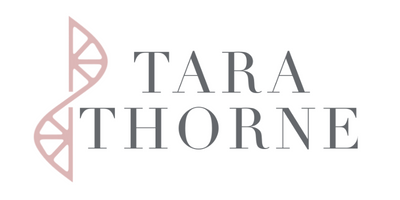
What is “Functional Medicine”?
Functional medicine aims to find the right treatment for the right person, by looking at everyone as individuals. It treats the root cause, not just the symptoms of disease. And it treats the entire system – not just certain parts of the body. It's aim is to create health, instead of simply treating disease. At it's core, functional medicine looks at how our genes, environment, lifestyle and diet interplay to affect our health.
What is the difference between a nutritionist and a dietician?
A dietician has obtained their certification via a university and they are a regulated profession.
Nutritionists have obtained their accreditation via a private college and are not a regulated profession.
Nutritionists tailor their recommendations to the individual and look at each individual as a whole, incorporating mind and body (lifestyle) into their recommendations. Additionally, nutritionists aim to get to the root of the problem and focus on prevention whenever possible.
Dieticians tend to take a more generalized approach, most often recommending foods, serving sizes and calorie intake according to Canada’s Food Guide (a “one size fits all” model of eating set by the government). Their recommendations and treatment plans must be evidence-based and rely heavily on scientific studies.
Nutritionists are able to harness both the most up-to-date nutritional science as well as clinical experience, which gives them the benefit of suggesting things that might not have been proven in the scientific literature as of yet, but their worth has been proven in practice. An example of this would be chromium – a supplement that can greatly help with blood sugar control but current science hasn't yet “proven” the case, yet.
The people who are likely to see a dietitian are often there to save their life or improve recovery from a serious health condition such as AIDS or a kidney disorder. Calculations are often required by dieticians, especially if individuals receive liquid diets or if they need intravenous nutrition. Hence, dieticians are required to follow many institutionalize settings when it comes to their dietary recommendations. Individuals seeing a nutritionist are not likely to be gravely ill (and if they are it would be a nutritionists responsibility to direct them to an MD if they aren't already).
We are all individual and as such what we eat can have a very personal affect on our systems. Everyone’s needs are different and it’s important to choose a health practitioner who recognizes this.
What does self-regulation mean when it comes to Nutritionists?
A Registered Holistic Nutritionist (RHN), is self-regulated by The Canadian School of Natural Nutrition and industry associations such as the Canadian Association of Natural Nutritional Practitioners. The title “Registered” means that, as an RHN, we are recognized by the institution that bestows the title – not another regulating body. We must sign a Code of Ethics and Scope of Practice policy that we must adhere to as RHNs and there are laws that we must be aware of and comply with in order to practice legally and ethically. Industry associations have been put in place to ensure high standards are met and that there is a vehicle for client complaints.
Why can’t I just go to my doctor for these issues?
Unfortunately many doctors aren’t trained in adrenal fatigue and simply do not know how to manage it. It’s notoriously hard to treat, with dietary and lifestyle changes, as well as herbs and supplements being integral in a patient’s recovery. Often Doctors will offer anti-anxiety or anti-depressant meds in lieu of alternative treatment. Doctors are however, trained in late-stage adrenal diseases such as Addisons disease or Cushings syndrome. The irony is that Addisons disease (when cortisol levels fall to dangerously low levels), is a commonly accepted diagnosis in allopathic medicine, but adrenal fatigue (mild adrenal insufficiency) is not. Additionally, the lab tests and diagnostic detection methods allopathic medicine current employ are not sensitive enough to pick up on the initial signs of adrenal fatigue. They’re great for diagnosing acute disease but not so great for chronic disorders. Relying too heavily on diagnostic tools such as lab work can also undermine a diagnosis that can be made by looking at a patient’s history, signs and symptoms.

Get my FREE guide to Healthy Gut. No matter what your health symptom or condition, you MUST work on your gut. In this free ebook Tara Thorne, Functional Nutritionist, guides you through the top things you need to be thinking about when it comes to optimizing your gut health.
Copyright © 2023 Tara Thorne Nutrition. All rights reserved. Privacy Policy

